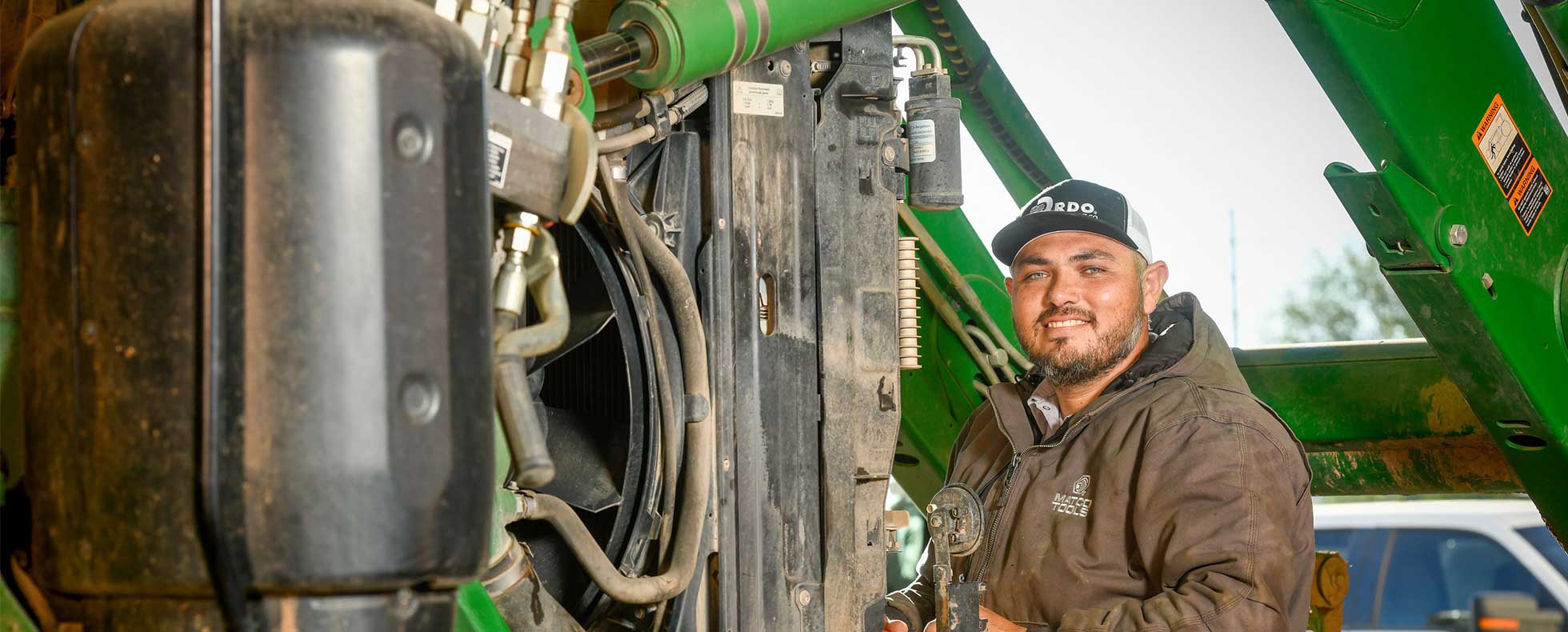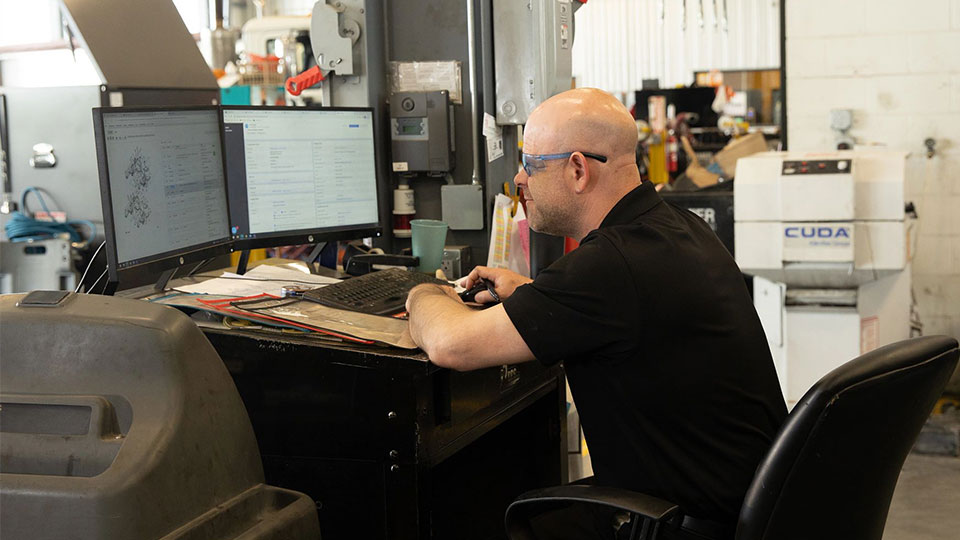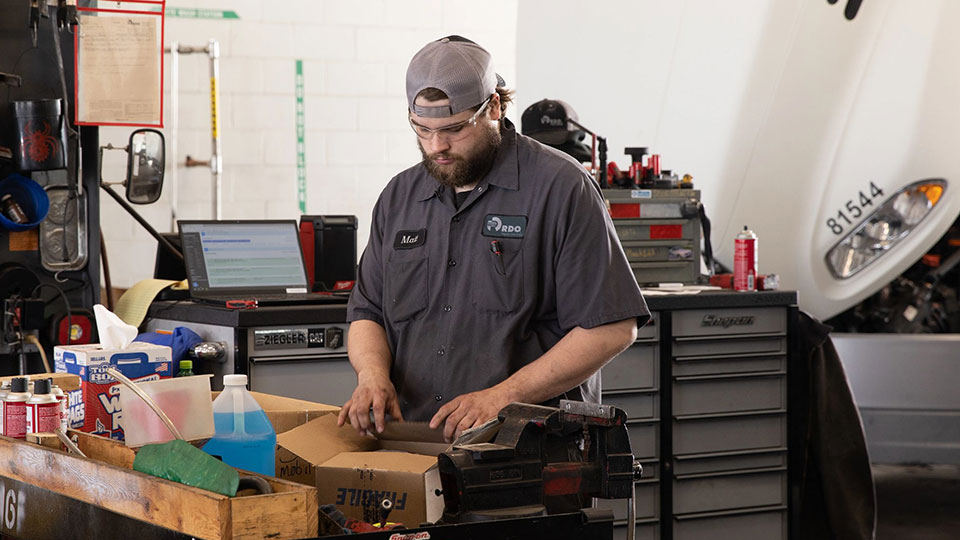
Your skills as a technician are in high demand. That means you’ll probably have plenty of opportunities to choose from as you pursue a new role.
Every time you apply for a new job, the company evaluates your abilities, experience and personality to determine whether you fit its needs. But evaluations do not need to stop there.
Instead, you should take the opportunity to find out everything you want (and need) to know about the company. A great way to do this is by asking questions.
Limited face time with each potential employer means you need to make the most of your opportunities to ask questions.
Preparing what questions you'll ask is a big step in getting ready for your next technician interview.
So what questions are most important to ask in a diesel technician interview?
What information should you make sure to find out before accepting a position?
At RDO Equipment Co., we interview thousands of diesel technicians every year to fill positions all over the U.S.
As you can imagine, we hear many questions during these interviews and learn what diesel technicians value most in a new company, including what they want to understand about a job before they start.
So you know exactly what you’re getting with every employer, here are 12 questions you should consider asking — and why they’re important.
This one is critical. As you probably know, a diesel technician’s schedule may change depending on where they work, what industry they work in and even the time of year.
Ask this question to determine whether you can expect a consistent 40 hours per week (or more), how much overtime potential there is and what shift you’ll be on.
Many employers have multiple diesel technician shifts, you’ll want to understand which one you would be working on so you can plan accordingly.
Think about your benefits package as an extension of your pay. Most employers offer their full-time diesel technicians (those working at least 40 hours per week) benefits such as vision, dental and health insurance.
Beyond this, you may be eligible for other employer-sponsored benefits like life insurance, a health savings account, a 401k (with a match), paid time off and even pet insurance.

The best companies invest in employee training and development. As a diesel mechanic, there will always be something new to learn. Whether it’s from an equipment manufacturer (like Peterbilt or John Deere) or internal, you deserve to receive adequate training from your employer.
Make sure to ask what kind of training you will receive so you can understand how a company invests in its employee development.
Sign Up: Service Technician Monthly Newsletter
Become a more profitable, successful mechanic with insights and resources sent to your inbox every month.
Workplace culture plays a big role in employee satisfaction. Before you take a new job, you might want to understand what it’s like to work at the company each day.
While you don’t have to ask “What is the culture like here?” exactly, try to find out some information about the overall experience of working there. This might include. . .
With these insights, you’ll have a good idea of what working as a diesel technician for a company would be like — and whether you’ll like it.
At some companies, your technician wage may be evaluated more or less frequently than at others. Most places review pay on an annual basis. However, it’s also not uncommon for a technician to have these evaluations (and pay increases) as often as quarterly.
At RDO, for example, our technicians sit down for a career-path performance review four times per year.
Asking about a company’s specific structure will help you understand how often you can expect your pay to change.
Depending on where you want to take your career, you may want to ask if the company you’re considering has a structure for professional progression.
This could be a built-in system where after a set amount of time or number of jobs completed, you can rise in job title — from Service Technician Level 1 to Service Technician Level 2, for example.
At RDO, for instance, leveling up is based on training credits completed, building up efficiency on jobs and consistently performing quality work.
As you know, heavy equipment/diesel technology tools are expensive. Like, really expensive. Although it’s usually up to a diesel technician to acquire tools to perform their work, some companies provide assistance.
Tool reimbursement programs are especially impactful for new technicians, but technicians of all ages/experience levels can benefit from them. If this is something you’re concerned about, find a company that offers some support.
Nearly every machinery manufacturer requires some specialized tools to fix their equipment. Usually — especially in a dealership setting — these tools are provided for service technicians. These tools, like others, can be expensive, so it’s important to know if you’ll be required to purchase your own.
Some companies give their technicians perks in the form of bonuses and profit sharing. Paid out regularly (monthly, quarterly or yearly), these payments can be a really great incentive alongside your standard compensation.
Not every company structures its compensation like this, so if you’re curious, ask — it certainly can’t hurt.
Feeling safe at work as a technician is the most important aspect of your job. You deserve to work for a company that prioritizes your safety above all. To make sure, ask a potential employer about the systems it has to ensure safety in and out of its shops.
This should include things like:
If a company you’re interviewing with can’t give you a confident answer here, it might be best to look elsewhere.
Related: Service Technician Safety: 9 Things RDO Does to Ensure a Safe Work Environment
This is another future-oriented question. Working on heavy machinery and equipment can be hard on the body. After a while (this could mean decades), you might want to explore routes out of the shop.
This should not be a foreign concept for a company—it’s not uncommon for a technician to request a change. In fact, the best businesses do everything they can to retain good employees, and internal career alternatives are just one method.
You may want to ask this question to find out what this has looked like for the business in the past and what your options might be, if any, in the future.
The last question on this list is certainly not least. Turnover — the elephant in the room. Turnover, although uncomfortable for an employer to talk about, can give job candidates like you a good idea of what it’s like to work in a particular position.
Don’t be afraid to ask about the diesel technician turnover at a company. In fact, it’s probably best that you do. While it shouldn’t be the only factor you consider, it’s a red flag if a company has hired and lost a lot of diesel mechanics within a given period of time.
If you’re uncomfortable asking about turnover directly, consider asking, “What is the average tenure among your technicians?” Tenure is another factor to consider.

Asking the right questions of an employer is important for three reasons:
Use these 12 questions to ensure the next job you choose is the best one for you!
Asking the right questions is only one piece of selecting an employer, here are seven more tips to consider.
RDO Equipment Co. is a large construction and agriculture machinery dealership based in Fargo, ND. Across 80+ locations in 12 states, we hire service technicians to work on new and used equipment from brands like John Deere, Wirtgen, Topcon and Vermeer.
Take the next step in your journey toward becoming a service technology leader at RDO, where we:
Find an open position near you, or touch base with a recruiter today.